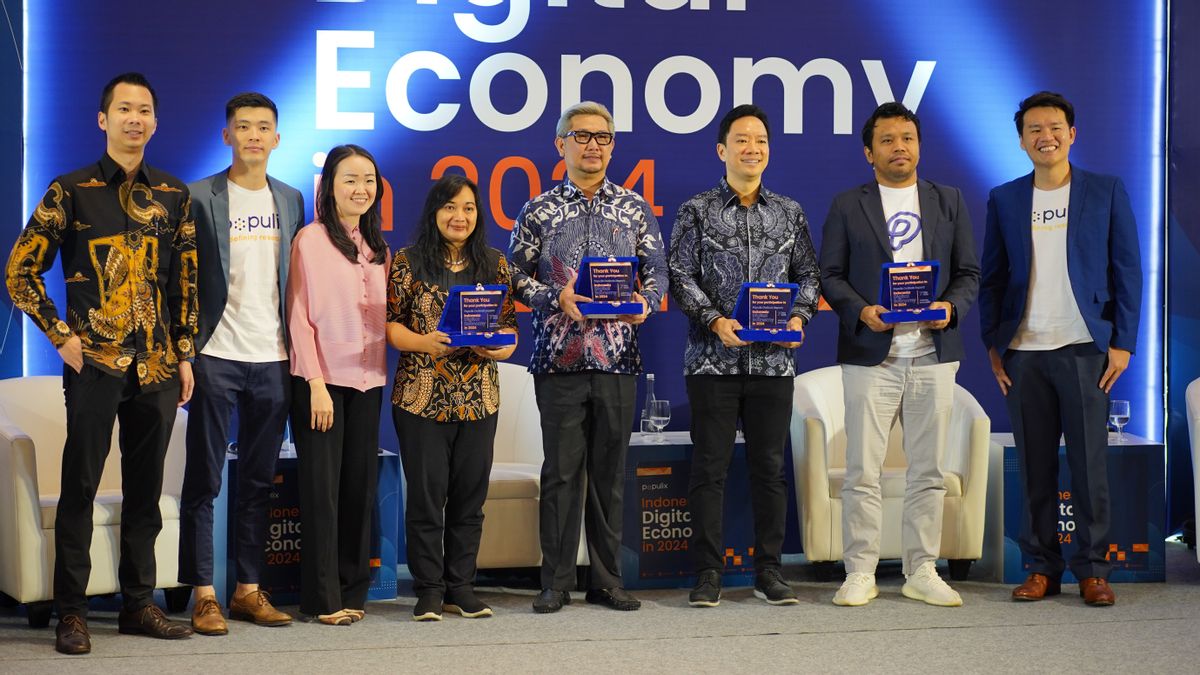JAKARTA - The dynamics of Indonesian behavior in shopping, seeking information, even investing, have undergone a major transformation in the last five years.
This is inseparable from the rapid development of technology, the influence of social media, and digital acceleration brought by the Covid-19 pandemic.
Along with the changing behavior shift, data and Insights provider service Populix conducted a comprehensive study to explore millennial consumption behavior and Gen Z in the era of technology that forms the business map in 2024.
The results of this study entitled Indonesia Digital Economic and Financial Outlook 2024 reveal how technology brings changes to the behavior of millennial spending and financial aspirations and Gen Z.
These two generations show different preferences in shopping and managing their finances.
Millennials tend to focus on their responsibilities in the family, so they have more mature planning and financial management to achieve financial stability in the future.
Therefore, their shopping style and financial priorities are centered on daily needs, pension fund savings, preparing education funds, and investing in minimal risk instruments.
Meanwhile, Gen Z, whose majority are not married, shows a more impulsive style of spending and financial management and is centered on lifestyle and entertainment. Their decision was driven a lot by exposure to social media that formed the Fear of Missing Out (FOMO) mentality.
Populix co-Founder and CEO, Dr. Timothy Astandu said by 2024, it is predicted that more and more consumers will seek long-term investment, increasing technology integration into financial services, and positive movement in terms of financial inclusion.
"This certainly brings opportunities and challenges for business people, financial institutions, and the government, so that research and data are increasingly important to make the right decisions", he explained in his official statement, Friday, December 8.
INDEF Program Director Esther Sri Astuti said that in 2024, the digital economy is projected to continue to grow positively and even double in 2025. The prospect of the digital economy is very large driven by the shift in behavior from millennials and Gen Z as the largest consumer group.
"Therefore, it takes a role from the financial industry, both from the banking and non-banking sectors, to support equal distribution of the digital economy, as well as strong regulations from the government to protect user data and user security from cyber attacks," said Esther.
SEE ALSO:
Meanwhile, Pluang Chief Commercial Officer Riadi Esadiputra saw how the digital acceleration brought by the Covid-19 pandemic two years ago boosted millennial understanding and Gen Z regarding investment for the future.
Riadi said that his party will continue to increase investment literacy, and Pluang will actively provide understanding to the younger generation about various investment instruments and the risk profiles owned by each instrument, especially through the Pluang Academy content platform.
"Thus, they can make careful investment planning to achieve financial goals in the future," he said.
The English, Chinese, Japanese, Arabic, and French versions are automatically generated by the AI. So there may still be inaccuracies in translating, please always see Indonesian as our main language. (system supported by DigitalSiber.id)
















